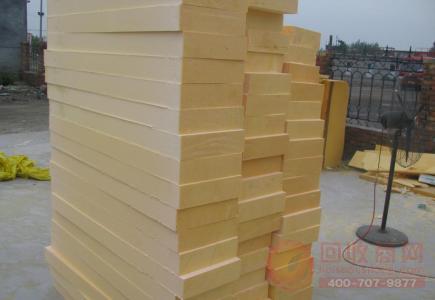
Phenolic insulation board is a new type of green environmental protection material. It is a closed-cell rigid foam made of phenolic resin with flame retardant, smoke suppressant, foaming agent, curing agent and other additives. Its long-term use temperature is -250 ° C ~ 150 ° C, does not ignite in case of fire, does not melt in high temperature environment, does not soften only surface carbonization. The thermal conductivity of the phenolic insulation board is only about 0.023 W/mk, which is almost equivalent to that of polyurethane, and the insulation performance is very good. Its most prominent features are flame retardant, low smoke, and high temperature resistance. It can be cast in place, foamed, moulded or machined, and can be made into sheets, shells and various shaped products. It overcomes the shortcomings of the original foam plastic insulation material which is flammable, smokey and deformed by heat, and retains the characteristics of light foaming and convenient construction of the original foam plastic insulation material. The phenolic board has abundant raw materials, low price, simple production and processing, and wide application. It is suitable for large cold storage, storage tanks, ships and various insulation pipes and construction industries. If it is used in factories, mines and machinery with strict fire protection requirements, it can highlight its characteristics of flame retardance, low smoke and high temperature resistance. Such as: steam, warships, trains, armored vehicles insulation and paper, chemical, pharmaceutical and other aspects.
Phenolic insulation board performance comparison of various insulation materials:
1. Defects of polyurethane: It is easy to burn in case of fire, and it is easy to produce toxic gas, which is harmful to human health;
2, the defects of polystyrene: easy to burn in case of fire, will shrink for a long time, poor thermal insulation performance;
3, rock wool, glass wool defects: harm to the environment, breeding bacteria, high water absorption, poor thermal insulation, poor strength, short service life;
4, the advantages of phenolic: non-combustible, no toxic gas after burning, no smoke, low thermal conductivity, good thermal insulation, sound insulation, weather resistance, service life can be up to 30 years;
5, has a uniform closed-cell structure, low thermal conductivity, good thermal insulation performance, comparable to polyurethane, better than polystyrene foam;
6, the applicable temperature range is large, can be used at -200 ° C ~ 200 ° C in the short term, can be used at 140 ° C ~ 160 ° C for a long time, better than polystyrene foam (80 ° C) and polyurethane foam (110 ° C);
7. The phenolic molecule contains only carbon, hydrogen and oxygen atoms. When it is decomposed by high temperature, it will not produce other toxic gases except for a small amount of CO gas. The maximum smoke density is 5.0%. After being subjected to flame spraying at 1500 ° C for 10 min, the 25 mm thick phenolic foam board has only a slight carbonization on the surface but does not burn, and does not ignite or emit smoke and poison gas;
8. In addition to being corroded by strong alkali, phenolic foam can withstand almost all inorganic acids, organic acids and organic solvents. Long-term exposure to sunlight, no obvious aging, and therefore better aging resistance;
9. The cost of phenolic foam is low, only two-thirds of that of polyurethane foam.
Geotech Accessories,Carbide Drill Bits,Metal Drill Bit,Metric Drill Bits
J.B Machinery (Ningbo) Co., Ltd. , https://www.jbdrill.com